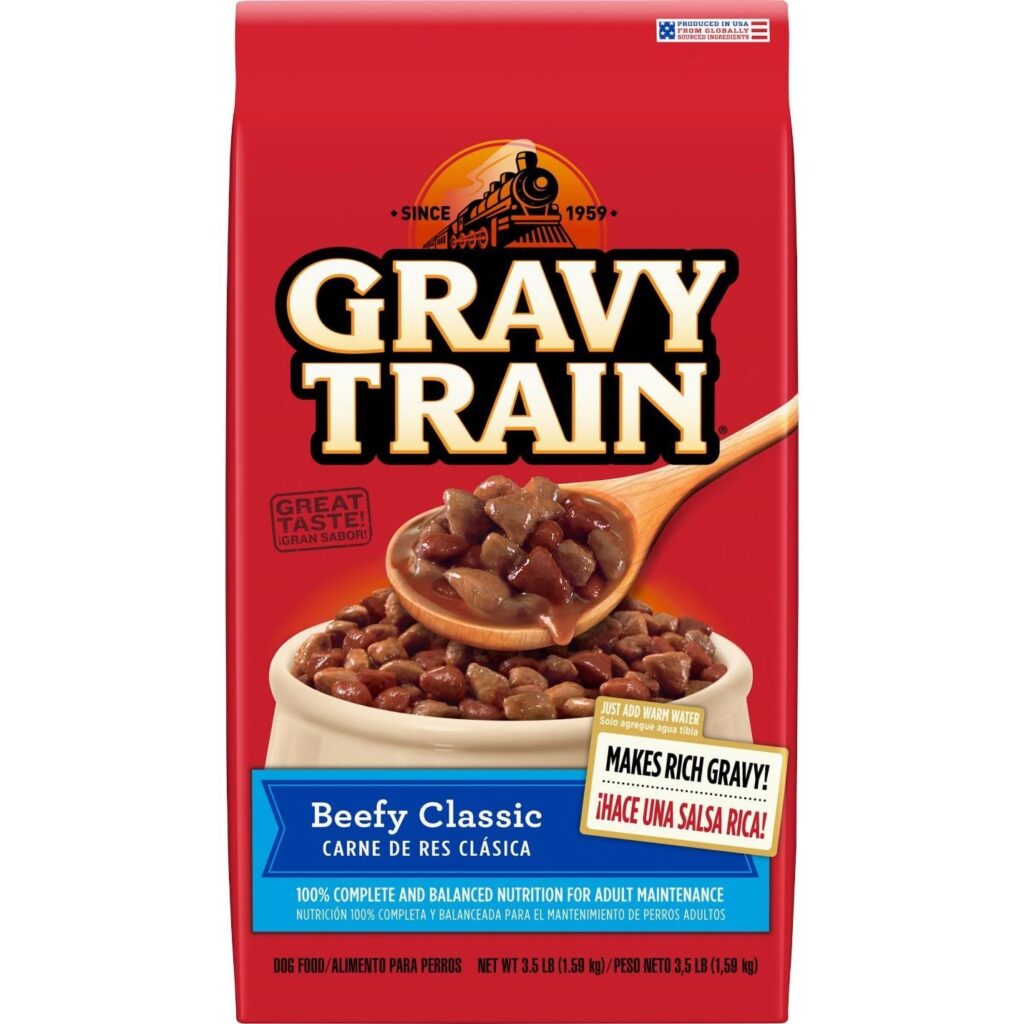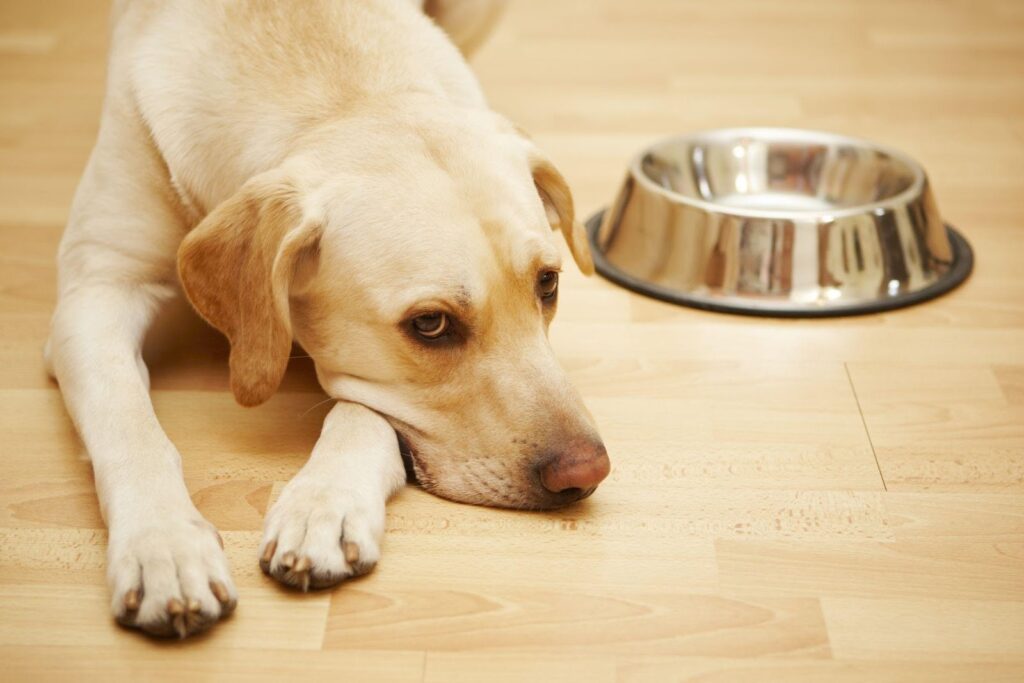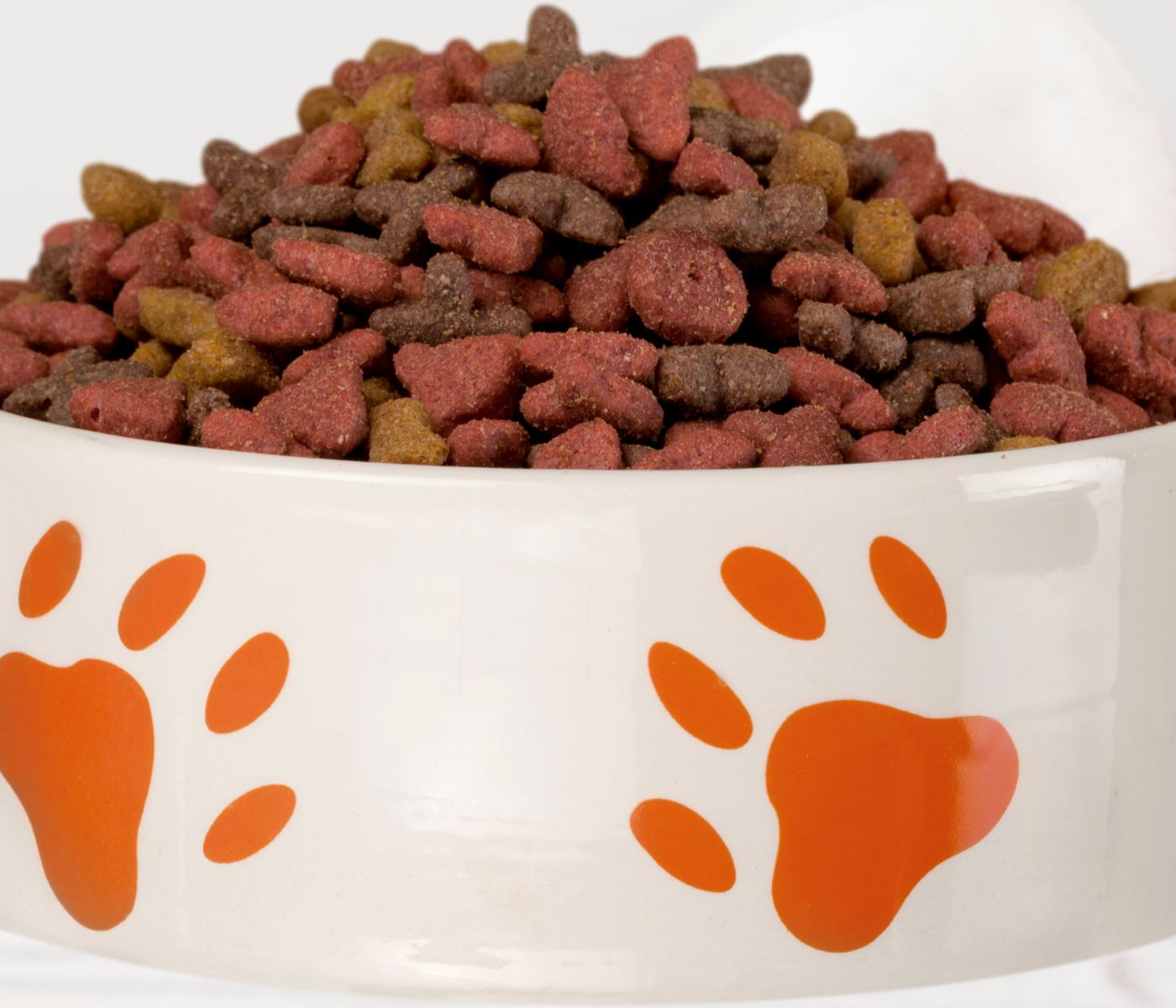Dogs are considered man’s best friend, and their health and well-being should be a top priority for pet owners. One of the ways to ensure that dogs stay healthy is by providing them with a balanced and nutritious diet.
Gravy Train is a famous brand of dog food that has been around for decades. It is widely available and affordable, making it an attractive option for pet owners looking for an easy and convenient way to feed their dogs.
However, with so many different dog food brands on the market, it can take time to determine whether Gravy Train is the right choice for your furry friend.
This article will examine the ingredients, nutrition, and health benefits and risks of Gravy Train dog food.
This article aims to provide pet owners with all the information they need to decide whether Gravy Train is a good option for their dogs.
It is important to remember that every dog is different and has unique nutritional needs.
Before switching to Gravy Train or any other brand of dog food, it is recommended to consult with a veterinarian to determine the best diet for your furry friend.
Ingredients:

The main ingredients in Gravy Train dog food are meat and bone meal, corn gluten meal, soybean meal, and animal fat.
These ingredients are sourced from various animals, including beef, chicken, and fish. The product also contains added vitamins and minerals to ensure that it meets the nutritional needs of dogs.
Feeding Recommendations:

Gravy Train recommends feeding your dog a specific amount based on weight and age.
It is essential to follow these recommendations, as overfeeding can lead to obesity and other health problems.
Feeding your dog, a balanced and varied diet, including wet food and fresh fruits and vegetables, is also recommended.
Cost:
Gravy Train is considered a more affordable option than premium dog food brands. However, the low cost may be due to lower-quality ingredients and artificial preservatives.
It is essential to consider the long-term health consequences of feeding your dog a diet that is not nutritionally balanced.
Is Gravy Train Good for Dogs?

The answer to this question is subjective and depends on the individual dog and its nutritional needs.
Gravy Train is a convenient and affordable option for pet owners, but some dogs have better choices. The use of low-quality ingredients and artificial preservatives can hurt your dog’s health over time.
On the other hand, if your dog has no health issues and is not particularly sensitive to the ingredients in Gravy Train, it may be a suitable food option.
It is essential to keep an eye on your dog’s weight and overall health, and if you notice any changes, consult a veterinarian to determine the cause.
Health Benefits and Risks of Gravy Train for Dogs:

Health Benefits:
- Convenient Kibble Form: Gravy Train is a dry kibble that is easy to store and serve to your dog. It is also a good option for dog owners who are always on the go.
- Affordable Price Point: Gravy Train is more affordable compared to premium dog food brands, making it a good option for pet owners on a budget.
- Wide Availability: Gravy Train is widely available in pet stores and online, making it easy to find and purchase.
Health Risks:
- Low-Quality Ingredients: The main ingredients in Gravy Train dog food are low-quality by many pet food experts. They are often used as filler and do not provide a significant protein or another nutrient source.
- Artificial Preservatives: Gravy Train contains artificial preservatives, including BHA and BHT, which have been linked to health problems in dogs, including cancer.
- Unbalanced Nutrition: Gravy Train does not provide dogs with a balanced and nutritious diet. Feeding your dog, a varied diet, including wet food and fresh fruits and vegetables, is essential to ensure they get all the nutrients they need.
It is important to note that every dog is different and has unique nutritional needs.
Before switching to Gravy Train or any other brand of dog food, it is recommended to consult with a veterinarian to determine the best diet for your furry friend.
Alternatives to Gravy train:
Many alternative dog food brands, to Gravy Train provide higher quality ingredients and better nutrition for dogs. Some of the top alternatives include:
- Wellness Complete Health: This brand offers a variety of dry and wet dog food options made with high-quality ingredients and no artificial preservatives, colors, or flavors.
- Blue Buffalo: Blue Buffalo offers a range of dog food options with natural ingredients and no chicken or poultry by-product meals.
- Merrick: Merrick offers a variety of dry and wet dog food options made with natural, whole-food ingredients, including fruits and vegetables.
- Hill’s Science Diet: Hill’s Science Diet offers a range of dog food options formulated to meet the specific nutritional needs of dogs of all ages, breeds, and sizes.
- Royal Canin: Royal Canin offers various dog food options to meet the specific nutritional needs of dogs of all ages, breeds, and sizes.
These alternative dog food brands offer higher quality ingredients and better dog nutrition than Gravy Train.
Pet owners should always choose a dog food with high-quality ingredients and provide a balanced and nutritious diet for their furry friend.
It is also essential to consult with a veterinarian to determine the best diet for your dog and to make sure that any changes to their diet are made gradually to avoid digestive issues.
FAQs:
Q: What is the best way to transition my dog to a new brand of dog food?
A: When transitioning your dog to a new brand of dog food, it is essential to do so gradually over several days to a week. This will help your dog’s digestive system adjust to the new food and avoid any digestive issues.
Start by mixing small amounts of the new food with their current food and gradually increasing the new food over time. It is also recommended to consult with a veterinarian to ensure that your dog’s transition to the new food is smooth and safe.
Q: Can Gravy Train dog food cause digestive problems in dogs?
A: Gravy Train dog food can cause digestive problems in dogs due to its low-quality ingredients and artificial preservatives. These ingredients can be problematic for dogs to digest and lead to upset stomachs, diarrhea, and other digestive issues.
It is essential to consult with a veterinarian to determine the best diet for your dog and avoid any potential health problems.
Q: Do you mix water with Gravy Train dog food?
A: Mixing water with Gravy Train dog food is not necessary, as it is marketed as a wet food product with gravy added to it.
However, some pet owners may add water to the food to make it easier for their dog to eat or dilute the gravy.
If you do add water, it is essential to do so gradually and not over-dilute the food, as this can reduce the overall nutrition content.
It is always recommended to consult with a veterinarian to determine the best diet and feeding routine for your dog.
Q: Can I give my dog gravy every day?
While Gravy Train dog food is marketed as a wet food product with added gravy, feeding your dog gravy is not recommended daily.
Gravy Train is not considered a high-quality dog food by many pet food experts and contains low-quality ingredients and artificial preservatives, including BHA and BHT, which have been linked to health problems in dogs, including cancer.
A balanced and nutritious diet for dogs should include a variety of foods, including wet food, dry food, and fresh fruits and vegetables. It is essential to consult with a veterinarian to determine the best diet and feeding routine for your dog.
Overfeeding gravy or any food can lead to weight gain and other health issues.
Q: Can dogs with food sensitivities eat Gravy Train dog food?
A: Dogs with food sensitivities or allergies may not be able to eat Gravy Train dog food, as it contains ingredients that can be difficult for some dogs to digest.
Common food sensitivities in dogs include beef, chicken, and wheat. It is essential to consult with a veterinarian to determine if your dog has any food sensitivities or allergies and to find a suitable diet that meets its needs.
